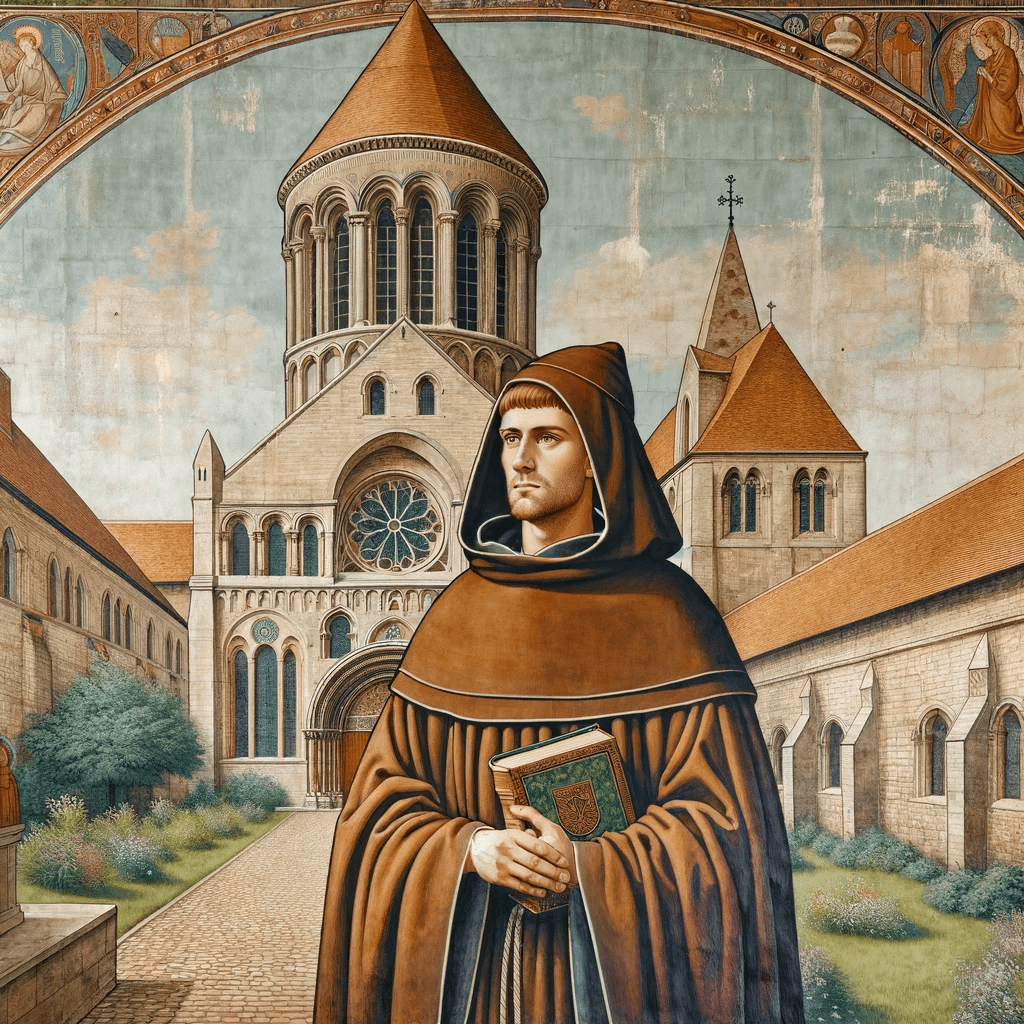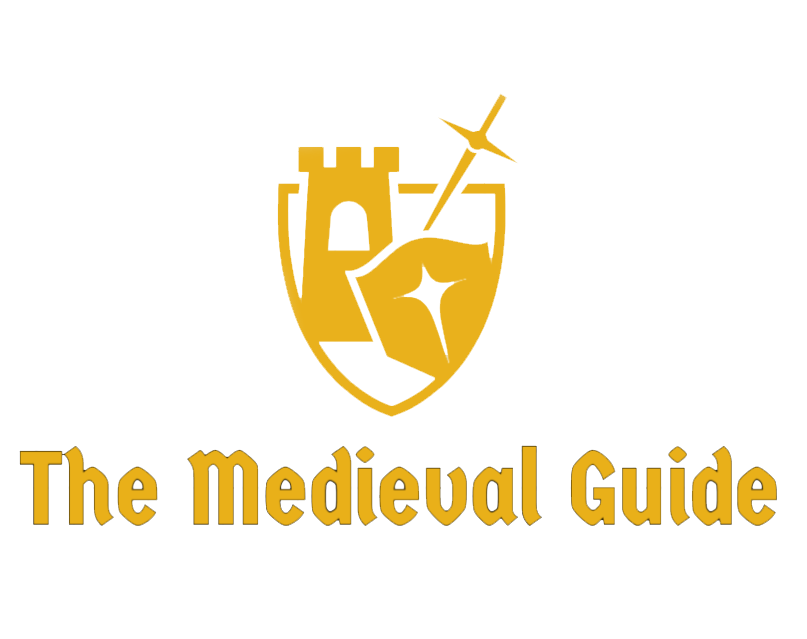Unveiling Famous Medieval Monks
Welcome to the fascinating world of medieval monks! In this section, we will introduce you to the medieval monks who left a lasting impact on history. Let’s delve into their lives and understand why they were significant during their time.
Introduction to Medieval Monks
During the medieval period, monks played a prominent role in religious and societal affairs. These individuals devoted their lives to a monastic lifestyle, seeking spiritual fulfillment and serving God through their actions. Monasticism, the practice of living in religious communities, became an integral part of medieval society.
Medieval monks resided in monasteries and followed strict rules and regulations known as monastic orders. These orders provided a structured framework for their daily lives, encompassing aspects such as prayer, work, and study. Monks were recognized by their distinctive attire, which often included a habit and a tonsure (a shaved or closely-cropped hairstyle).
Why Were Medieval Monks Significant?
Medieval monks held great significance in their society for several reasons. They were not only spiritual leaders but also contributed to various aspects of medieval life. Here are a few reasons why medieval monks were notable:
- Preservation of Knowledge and Culture: Medieval monks played a crucial role in preserving and safeguarding knowledge during a time of political and social turmoil. They meticulously copied and transcribed ancient manuscripts, ensuring the survival of important texts from classical and early Christian civilizations. Monastic libraries became repositories of knowledge, safeguarding the intellectual heritage of humanity.
- Influence on Medieval Society: Monks had a profound impact on medieval society. They provided charitable services, such as running hospitals, caring for the sick, and providing education to the local community. Monasteries often served as centers of agricultural production, contributing to the local economy. Monks also acted as advisors to kings and rulers, exerting influence on political matters.
- Enduring Impact on Christianity: Medieval monks played a crucial role in shaping the development of Christianity. Their theological and philosophical writings contributed to the understanding of religious doctrine and spirituality. Through their devotion and teachings, they inspired countless individuals to embrace the Christian faith.
Now that we have introduced you to the world of medieval monks and their significance, let’s delve deeper into the lives and achievements of some of the famous medieval monks who left an indelible mark on history.

Notable Medieval Monks
During the medieval period, numerous monks made significant contributions to the development of religion, philosophy, and knowledge. Here are five notable medieval monks who left an indelible mark on history:
St. Benedict of Nursia
St. Benedict of Nursia, also known as the father of Western monasticism, played a pivotal role in shaping medieval monasticism. In the 6th century, he established the Benedictine Order, which emphasized a balance between prayer, work, and study. The Benedictine Rule he created became a guiding principle for many monastic communities. St. Benedict’s legacy continues to influence monastic life to this day. To learn more about medieval monasticism, visit our article on medieval monasticism.
St. Francis of Assisi
St. Francis of Assisi is renowned for his devotion to poverty, simplicity, and love for nature. In the 13th century, he founded the Franciscan Order, which focused on living a life of humility and service to others. St. Francis is remembered for his deep compassion for the poor and his affinity for animals and the environment. His spiritual teachings and example continue to inspire people worldwide.
Thomas Aquinas
Thomas Aquinas, a Dominican friar, made significant contributions to theology and philosophy during the medieval period. His works, such as the monumental “Summa Theologica,” synthesized Christian theology with the philosophy of Aristotle. Aquinas’ rational approach to faith and reason had a profound impact on medieval thought and shaped the course of Western philosophy. His writings remain influential in contemporary theological and philosophical discussions.
Bede the Venerable
Bede the Venerable, an English monk, was a renowned scholar and historian of the early medieval period. His most famous work, “Ecclesiastical History of the English People,” provides invaluable insights into the history and conversion of England to Christianity. Bede’s meticulous research and dedication to recording historical events have made him a significant figure in medieval historiography.
Hildegard of Bingen
Hildegard of Bingen, a German Benedictine abbess, was a remarkable polymath known for her contributions to music, theology, and natural medicine. She composed beautiful liturgical music and wrote theological treatises that explored the mystical aspects of faith. Hildegard’s extensive knowledge of herbs and natural remedies also led her to write influential works on scientific and medicinal practices. Her multidisciplinary approach to her pursuits set her apart as a remarkable figure of the medieval period.
These notable medieval monks left a lasting impact on society, religion, and intellectual pursuits. From shaping monastic orders to advancing knowledge in various fields, their legacies continue to be studied and appreciated today. Explore more about medieval monks and nuns in our article on medieval monks and nuns.
Contributions and Achievements
Medieval monks made significant contributions and achieved great feats in various fields during their time. Their impact extended beyond the confines of monasteries and left a lasting mark on medieval society. Let’s explore some of their notable contributions and achievements.
Monasticism and Monastic Orders
One of the most significant contributions of medieval monks was the establishment and development of monasticism. Monasticism refers to the practice of living a life dedicated to religious contemplation, prayer, and asceticism. Monks and nuns, as part of monastic orders, played a crucial role in promoting and maintaining this way of life. Monasticism provided a framework for spiritual growth, communal living, and the pursuit of knowledge. To learn more about medieval monasticism, visit our article on medieval monasticism.
Theological and Philosophical Works
Medieval monks were renowned for their profound theological and philosophical contributions. They produced numerous theological treatises, commentaries on religious texts, and philosophical works that shaped medieval thought. These writings explored concepts such as the nature of God, the meaning of life, and moral philosophy. Figures like St. Thomas Aquinas and St. Benedict of Nursia made significant strides in theological and philosophical thinking, leaving a lasting impact on Christian theology. For more information on medieval monks and nuns, check out our article on medieval monks and nuns.
Contributions to Science and Medicine
Medieval monks also made notable contributions to the fields of science and medicine. Within the confines of monasteries, they engaged in the study and preservation of ancient texts, including scientific and medical works. Monks played a pivotal role in copying and preserving these manuscripts, ensuring that knowledge from the classical world was not lost. They also conducted experiments, cultivated medicinal herbs, and developed treatments for various ailments. Monastic infirmaries provided care for the sick and served as centers for medical knowledge. To delve deeper into medieval monastic education, visit our article on medieval monastic education.
Art and Music
Medieval monks were patrons and creators of art and music. They illuminated manuscripts, creating intricate and beautiful illustrations that adorned religious texts. These illuminated manuscripts, with their vivid colors and detailed illustrations, served as visual representations of religious stories and teachings. Monks also composed and performed sacred music, including Gregorian chants and polyphonic compositions. Through their artistic and musical endeavors, monks enriched the cultural and spiritual landscape of medieval society.
The contributions and achievements of medieval monks went far beyond the walls of their monasteries. Their influence can be seen in the enduring impact on Christianity, the preservation of knowledge and culture, and the shaping of medieval society. The legacy they left behind continues to be appreciated and studied to this day.
Legacy of Medieval Monks
The influence of medieval monks extends far beyond their time, leaving a lasting legacy that continues to shape various aspects of society. Their contributions have had a profound impact on medieval society, Christianity, and the preservation of knowledge and culture.
Influence on Medieval Society
Medieval monks had a significant influence on society during the Middle Ages. Through their devotion to monasticism, they established monastic communities that served as centers of learning, spirituality, and hospitality. Monasteries provided shelter, food, and medical care for travelers and the needy, contributing to the welfare of society.
Monks also played a crucial role in agricultural development. They cultivated vast tracts of land, introducing new farming techniques and agricultural innovations. Through their hard work and expertise, they not only ensured the sustainability of their monastic communities but also contributed to the overall prosperity of the surrounding areas.
Their commitment to education and literacy had a transformative effect on society. Monks were instrumental in the preservation and transcription of ancient texts, safeguarding valuable knowledge from the ancient world. They established scriptoria, where they meticulously copied and illuminated manuscripts, ensuring that important works from classical antiquity were not lost to history. The monastic libraries became centers of learning and intellectual pursuits.
Enduring Impact on Christianity
Medieval monks made a lasting impact on Christianity. Through their devotion to a life of prayer, meditation, and contemplation, they inspired countless individuals to deepen their faith and seek spiritual enlightenment. Monastic communities served as beacons of piety, attracting both laypeople and clergy.
Monasticism became a powerful force within the Christian world, with different medieval monastic orders emerging. These orders, such as the Benedictines, Franciscans, and Dominicans, established distinct rules and practices, each contributing to the diverse tapestry of Christian spirituality.
The theological and philosophical works of medieval monks continue to shape Christian thought. Figures like Thomas Aquinas, known for his scholastic theology, and mystics like Hildegard of Bingen left behind writings that continue to influence theological discourse and spiritual practices.
Preservation of Knowledge and Culture
One of the most remarkable legacies of medieval monks is their role in the preservation of knowledge and culture. Through their dedication to copying and illuminating manuscripts, they safeguarded valuable texts from ancient Greece and Rome. Without their efforts, many of these works would have been lost to time.
Monastic libraries became repositories of knowledge, housing not only religious texts but also works of literature, philosophy, and science. Monks also contributed to the development of medieval monastic education, teaching future generations of monks and scholars.
Their artistic endeavors, particularly in the fields of art and music, enriched medieval culture. Monks created intricate illuminated manuscripts, painted frescoes, and composed hymns and chants that served as expressions of faith and beauty.
The legacy of medieval monks continues to inspire and captivate us, offering a glimpse into a time of profound devotion, intellectual pursuits, and cultural achievements. Their contributions and influence endure, reminding us of the enduring impact they had on medieval society, Christianity, and the preservation of knowledge and culture.
